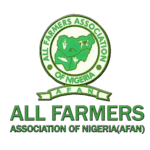Are we drifting into the abyss? Are we being governed and what is the state of governance in the country today? The state as we know it from political science literature does three things. First, it extracts resources from citizens through various forms of taxation. This assumes that the state knows all those who reside in its territory and is able to track them and make them fulfil their fiduciary obligations. Secondly, the state uses the resources it has extracted from residents and citizens to provide public goods such as security, social services and infrastructure for the welfare of inhabitants. Thirdly, the state has a regulatory role of making laws for the good governance of the country and sanctioning those who breach the laws and regulations in place through the judiciary and law enforcement agencies.
Last year, the Nigerian state abdicated its responsibility of provi-ding security for oil pipelines and installations and gave contracts to former Niger Delta militants to perform this core task. The insurgency in many parts of northern Nigeria has persisted and deepened and thousands of people are being killed regularly and the number of internally displaced people has grown considerably.
We know from Max Weber that the state must have the monopoly of the legitimate use of violence in modern society. We find ourselves in a situation in Nigeria in which private citizens have access to vast arsenals and use it against citizens and against security forces while for their part, security forces often use their own arms in an illegitimate manner killing and maiming citizens in an extra-judicial manner. We know that there is no state in the world where you do not have illegal arms in the hands of private citizens but when the quantum of such arms goes beyond a certain level and such private armies are able to attack security forces at will and the response of the security forces is to turn on ordinary citizens, then the State is in question.
The Islamic insurgency affecting the North East of the country has received a lot of attention. What has received less attention is the growing breakdown of state authority in other parts of rural Nigeria. There has been a rapid escalation of armed conflicts between mainly Fulani nomads and rural communities and a phenomenal expansion of cattle rustling and takeover of ungoverned territories by armed criminal gangs. What is needed is for state authorities and communities to engage in a sincere conversation about this phenomenon and how to solve it.
All over West and Central Africa, there has been a steady rise in the incidence of violent conflicts between nomadic pastoralists and sedentary farmers. In Nigeria, the level of violence has spiked dramatically over the past few years and we are witnessing a transformation of “normal” conflicts between pastoralists and farmers into generalised rural banditry. It is important that we do not allow this rising insecurity to continue to escalate.
The impact of climate change on our ecology has been profound. Over the past sixty years, the desert has claimed over 350,000 sq. km of the land area in Northern Nigeria affecting the lives of 28 million people and 58 million livestock. The North has 90% of the cattle stock in the country. The impact of these ecological changes on society is phenomenal. There has been a dramatic increase in the volume of transhumance between the North and the Middle Belt and the South. At the same time, a lot of the cattle routes on both the western and eastern transhumance corridors hitherto protected by the colonial regime in Nigeria have been blocked by the expansion of farms. The river basins have also been significantly blocked due to expansion of fadama dry season agriculture. The result is the in too many places, the nomadic herders find their routes to green pasture and water blocked and the result is crop damage and conflicts in a context in which traditional conflict resolution mechanisms have broken down.
It is in this context of a crisis of nomadism that many pastoralists have lost their cattle to draught, conflicts and rustling and some of their youth have resorted to armed robbery and cattle rustling to make a living. Nigeria as a nation has not paid enough attention to the necessity to stem the active agency of rural violence in which the crisis of nomadism and the activities of armed criminal gangs raiding communities have increased.
The nomadic herdsmen have the most to lose from conflicts and violence because they exist and move with all their wealth, which is the product of generations of accumulation and a guarantee for the survival of their children and grandchildren. They are basically the victims of the growing state crisis we are witnessing today. Mohammed Bello Tukur has pointed out for example that in the 1960s grazing areas were created by the government of Northern Nigeria. The National Livestock Development Project (NLDP) under the Federal Ministry of Agriculture had documented about 415 Grazing Areas in Northern Nigeria exclusively carved out for grazing and subsistence farming. Lack of demarcation and gazetting has made most of the grazing areas to fizzle out. Areas that had been demarcated and gazetted are also facing increasing pressure due to population growth and demands for farmlands. The NLDP had also undertaken a survey of the transhumant stock routes in Nigeria, including international routes from and into neighbouring countries like Niger, Chad, Cameroon and Benin Republics.
Some of the routes had been beaconed but demarcation had not been easy. One drawback on the utilization of these routes is that most of the times, host and sedentary groups are unaware of the routes and migration seasons. There is no conversation on the timing of seasonal migrations, which sometimes occur when farmers have not yet harvested their crops or had planted marginal crops. Awareness, enlightenment, sensitization and strong dialogue mechanisms with communities and their traditional leaders along transhumance corridors are imperative if these conflicts are to be resolved.
The general crisis in the country has also created a context in which criminal gangs have jumped into the bandwagon of rural criminality and cattle rustling creating a negative label for the Fulani who constitute the majority of the nomadic community. While it appears that there are indeed Fulani gangs engaged in cattle rustling, other criminal gangs have joined the fray and are simply stealing from communities and sometimes engaged in scorched earth practices for reasons that are not very clear.
In a recent interview with Daily Trust, the Emir of Birnin Gwari in Kaduna State alleged that the gangsters terrorizing his community are regularly supplied with arms through helicopters. Many witnesses in the committee hearing in the National Assembly last week have repeated similar allegation as well. While some have suggested involvement of foreign powers, others have suggested elements of the political class engaged in manoeuvres related to the 2015 elections. The suggestion here is that there may be external and/or state support for some of these gangs for the purpose of destabilizing the region.
The spate of killings due to rural banditry in Benue, Nassarawa, Plateau, Kaduna, Katsina and Zamfara states have reached a level where the state has to activate a national conflict prevention and resolution mechanism and state governments also need to do the same. We need to revisit the issue of cattle routes and grazing reserves. Above all, we need to revive local mechanisms for conflict resolution so that conflicts, which are bound to arise in the current context, are not allowed to degenerate into mass killings of innocent Nigerians. We need positive action now.
State crisis, pastoralist transhumance and rural banditry
Are we drifting into the abyss? Are we being governed and what is the state of governance in the country today? The state as we…
LEARN AFFILIATE MARKETING: Learn How to Make Money with Expertnaire Affiliate Marketing Using the Simple 3-Step Method Explained to earn $500-$1000 Per Month.
Click here to learn more.
AMAZON KDP PUBLISHING: Make $1000-$5000+ Monthly Selling Books On Amazon Even If You Are Not A Writer! Using Your Mobile Phone or Laptop.
Click here to learn more.
GHOSTWRITING SERVICES: Learn How to Make Money As a Ghostwriter $1000 or more monthly: Insider Tips to Get Started. Click here to learn more.
Click here to learn more.
SECRET OF EARNING IN CRYPTO: Discover the Secrets of Earning $100 - $2000 Every Week With Crypto & DeFi Jobs.
Click here to learn more.



